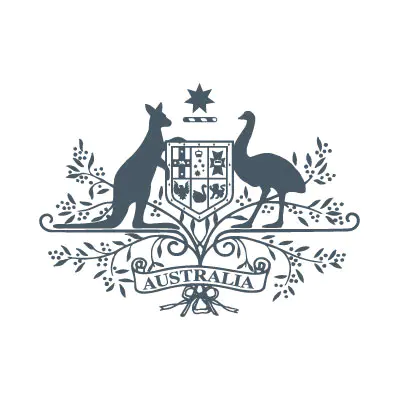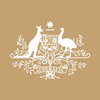
UN Women Australia International Women’s Day Parliamentary
I begin by acknowledging the traditional owners of the land on which we meet. I pay my respects to elders past, present and emerging, and I thank Aunty Violet for her Welcome to Country.
It is a particular honour to be here with you today, and I thank Georgina and UN Women Australia for their leadership.
International Women’s Day is part of a long history of women’s activism. And it has always been imbued with a deep understanding that the greatest weight that words can carry is the difference that they can make.
I am proud to be Prime Minister in a Government that is committed to making a positive difference to the lives of Australian women – and, in the process, making Australia a better country.
Among our achievements during the first eight months in Government, we have:
- Passed legislation to make child care cheaper, which will work for children, work for families, but importantly as well, work for the economy by driving workforce participation and productivity;
- Committed to extend Paid Parental Leave to six months, the biggest expansion since it was introduced by the last Labor Government;
- Worked to expose and close the gender pay gap, and we’ll be introducing further legislation in the Parliament this morning;
- Importantly, from the first of February, Australians now have access to 10 days paid family and domestic violence leave, something that passed the Parliament with support across this Parliament, importantly, meaning that it won’t be the subject of political dispute in the future;
And I am proud that these are the achievements of the first Australian government to be made up of a majority of women.
Fifty-four of the 103 members of the caucus that I lead are women. And we’re better for it.
The majority of Parliamentary Committee chairs are women. A first.
And a record 10 members of the Cabinet are women, including senior members such as the Minister for Finance, Katy Gallagher, and of course our Senate Leader, Penny Wong.
Australian women have been world leaders – among the first in the world to win the vote and to be eligible to run for Parliament.
The success of the composition of our caucus didn’t just happen. There were decades of work, primarily from women, in setting quotas and nurturing cultural change.
The pay-off is a diverse and strong caucus.
What we have achieved here is a Government that better reflects the Australian community.
Truer representation means that you make better decisions.
As a Government that listens to women’s voices, we can better govern for all Australians.
I am only sorry that my great friend Susan Ryan is not here to see it, though I am proud that her great legacy is woven into so much of what we do.
If she were still here, she would have been the first to remind me that there is always more to do.
And indeed there is, as the figure of Australia running 43rd when it comes to women’s quality. Think about that, and the state of our economy. We’re a G20 nation, and we’re running 43rd.
Quite clearly, not good enough, and no time for us to rest on our laurels.
The Adelaide-born suffragist Muriel Matters never did.
When Australian women became among the first in the world who could vote and run for parliament, Matters was one of many Australian women who took up the fight in what was then the motherland, the UK.
As part of the Women’s Freedom League’s campaign to enfranchise British women, her courage was matched by her inventiveness.
As Clare Wright recalls in her book ‘You Daughters of Freedom’, it was in the lead-up to the King’s state procession to open Parliament in February 1909 that Matters had an idea.
WFL members were banned from distributing pamphlets in the street. Matters spotted the loophole in that and decided to go above the street.
She hired a motorised blimp, and planned to fly over central London, to scatter 25kg of pamphlets over the Royal procession while shouting through a loudhailer.
Bear in mind that this was in the very early days of flight. The sheer audacity of this plan.
Unfortunately, the wind was stronger than expected and the little airship – emblazoned with the message “VOTES FOR WOMEN” – proved a bit challenging to steer.
Matters and her pilot ultimately missed the Royal procession, but she was still able to send her pamphlets over London in a blizzard of equality.
She got her headlines, all right. What Muriel Matters didn’t about know about cutting through in the media wasn’t worth knowing.
It took courage, conviction, imagination, and that deep, burning desire for other women to enjoy the same democratic equality that she had already been granted at home. She knew how to make her voice heard and demand change.
I thought that was a relevant story at UN Women Australia, talking as Georgina has about the responsibility that we have, not just here, but in our region as well, in other nations, to promote equality for women.
We of course heard that same shout for change just under a year ago during the women’s March 4 Justice across Australia.
Including, significantly, one on the lawn just a handful of metres from here.
Australian women raising their voices and demanding change. Saying enough is enough.
We’ve heard powerful, compelling voices – not the least Grace Tame, who used her time as Australian of the Year to make it clear she would never be kept silent again.
She and so many others spoke up. They spoke loudly and they spoke clearly. They spoke for those who have yet to find their own voices, or who simply can’t. And they spoke to our whole nation.
And we heard women’s voices so powerfully at the federal election a couple of months later.
The parliament we have now is very different to the one that we had before May 21.
More women in the Parliament makes our democracy stronger. We make better decisions when a more diverse and representative range of voices sit around the decision-making tables.
For our Government, that means we will not rest in our efforts to bring about real, meaningful equality. To make sure we govern for all Australians.
That’s why we’re putting women’s participation and opportunity at the heart of our economic agenda.
You saw that at the Jobs and Skills Summit and the Budget handed down in October by Treasurer Jim Chalmers and Finance Minister Katy Gallagher.
It was a budget that put the needs and aspirations of women front and centre.
I made a very conscious decision to make the Minister for Finance also the Minister for Women.
If you think about the title that goes across all of the spending portfolios, that ensures that through the personification of Katy Gallagher, there is that assessment of every portfolio, not just one or two, or when all of us remember, that it’s an important factor. And I assure you, that Katy certainly does that.
The Budget did make some major changes to put the aspirations of women front and centre.
We are doing a better job at recognising and valuing the essential care work – paid and unpaid – that women have traditionally carried the load on.
We are making serious reforms in early childhood learning and parental leave.
We’re funding pay rises for aged care workers.
Why is it, that in 2022, those people who clearly are the most underpaid, are the same people who got us through the pandemic?
Cleaners, aged care workers, child care workers, what do they have in common? They’re primarily merrily feminised industries. And that’s why our industrial relations plans were also aimed at dealing with that.
We’re developing a National Strategy for the Care and Support Economy, setting a long-term vision to deliver quality care and decent jobs across all of those services and care sectors.
Being a good global citizen, of course, here at the UN, we know means also being a good member of the neighbourhood.
We have someone called Penny Wong, sitting there, doing precisely that work. Changing the way Australia is perceived just by her dignity, and who she is, and her clear compassion for the people of this region.
Just one example is our recently renewed commitment to strengthening our education partnership with Papua New Guinea. And that includes making sure that equality for women and girls goes far beyond the opportunity to attend school.
Now, no government stands on its own. I firmly believe that change doesn’t occur just in one direction, it comes from the bottom up when it is most lasting. Governments need to respond to that, and where appropriate, they need to lead.
There is a better Australia at our fingertips. An Australia in which equality is no longer a goal or an aspiration, but a reality.
A reality that I hope, in the end, will be entirely unremarkable.
And that should be the task that we set ourselves.
Something whereby dealing with issues such as the wage disparity which is there, the disparity which is there in superannuation accounts, the disparity which is there in so many areas of economic participation.
Where there’s equality and people don’t really notice it, because of course, there is. Because it should always have been the case.
Thanks very much.


